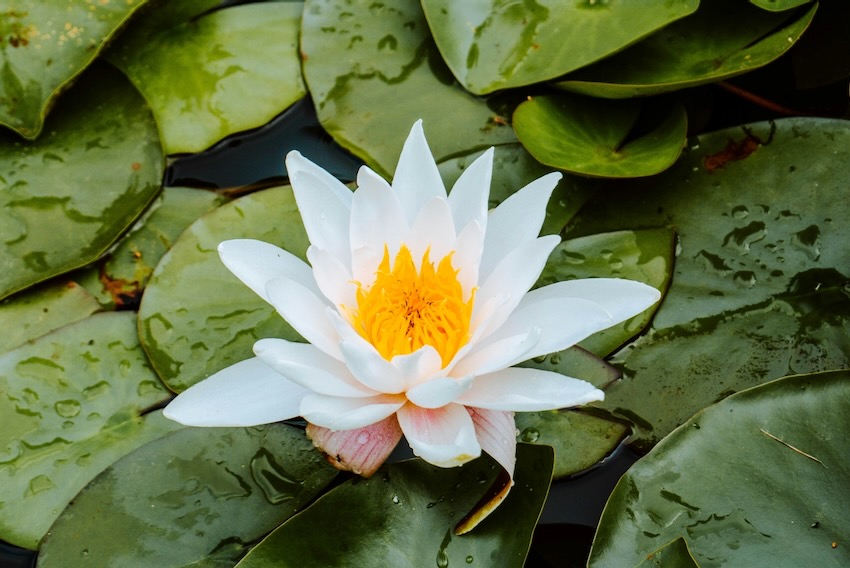
The White Lotus effect has been the phrase of the year since the stylish and addictive luxury ‘whodunnit’ series returned to our screens, this time set in Thailand. The White Lotus effect alludes to how the popular HBO programme has impacted on both bookings at hotels, but also the impact on the local environment and communities wherever it films, as tourists descend on the luxury locations featured in the programme.
It’s not a new phenomenon, Set Jetting. In 2000, The Beach put Thailand’s pristine islands firmly on the backpacker trail to the extent that Maya Bay, where the film was centred, was closed in 2018 to recover from the 6,000 daily visitors. It has since reopened but the numbers of people travelling to the bay are being capped to protect the local environment.
And who can forget just a year later the arrival of the Lord of the Rings trilogy with New Zealand as its dramatic backdrop. It is thought this saw an increase of some 40 per cent of visitors to the country. At the time Tourism New Zealand’s Gregg Anderson told Forbes: “I’m sure Lord of the Rings played a huge part in that, but it wasn’t the only factor. About 1% of visitors said that Lord of the Rings was the reason they came. It’s only one 1%, but that’s worth NZD$33 million a year.”
HotelPlanner dealt with $1.4 billion worth of bookings last year so we asked chief communication officer Tim Gunstone about The White Lotus effect and what it means for responsible travel and sustainable stays.

Have you noticed an increase in visitor numbers at partner hotels in Thailand because of the White Lotus Effect ?
TG: “To be honest, it’s too early to look at Koh Samui and Thailand [where the third and latest series was filmed], because of the time it takes people to book. I dug out the booking figures for Taormina, which is where the previous episode of White Lotus was filmed in Sicily.
“The prices rose 500 per cent during the filming and stayed very high for the following year. The year after they fell below their normal rates. Essentially, what we have is a huge platform with a huge number of bookings so when I looked at Taormina I thought, oh, this is, this is an obvious spike.”
It’s not a new thing, Set Jetting, is it? And how do we know if an uptick is specifically because of a programme?
TG: “They reckon that Lord of the Rings increased tourism to New Zealand by huge amount [around 40 per cent] and there might be an uptick, in for example London because of the Harry Potter film, or just because of a big event – it is hard to tell, but with the town of Taormina, which is obviously not huge, to have that sort of increase is quite significant.
Do you think that it’s the responsibility of the filmmakers and TV producers to chat with the destination management people and the hotels about this impact?
TG: “The hotels need to recognise it for what it is. It’s free marketing, and they need to obviously exploit that, because you’ve got to make money when you run a hotel but I do think hotels make the same mistake and whack up the prices significantly. I think the average rate the year before the film crew arrived it was around 200 Euros but then it went up to 468 Euros for the filming, and then it went down the year after production. Now it’s gone back to where it was pre-White Lotus.”
White Lotus is very much focused on a specific hotel or resort, but with Lord of the Rings, it’s the whole country. Does HotelPlanner work with different stakeholders to monitor the impact of these trends?
TG: “Our clients are the people that book the hotel so we look after them first, and we make sure the hotel partners are doing well. We can’t tell them how to set the prices but we can say “if you want to have sustainable, long term growth, get your product out there. Make sure it’s fantastic. Make sure people talk about it.”
When people say we need to spread the love a bit and visit a different destination isn’t that just sending people off to somewhere that isn’t ready for all those tourists…
TG: “The truth of the matter is the second tier destinations are often better than top tier destinations. A film based in Venice will increase visitors to an already really visited place. Maybe they should look some of the other amazing cities really nearby and encourage travelling out of season, as well especially with some of the heat we had in Europe last year, the seasons are being expanded massively.”
And do you have filters on your bookings so people can choose a sustainable hotel?
TG: “We do. We’re trying it. We honestly haven’t found the right solution yet. Hotels talk about it a lot and it’s a very difficult thing to say one hotel is sustainable, it’s almost impossible, so we are still looking for it. Booking.com has led the way on this – but hotels saying they’re sustainable – is that true?”
Well customers have to do research into that if they don’t believe it. So HotelPlanner would have to decide on what it considers to be a good certification, and then filter that out?
TG: “Which is for a hotel tech company a big job.”
But in the end with all the legislation coming through, everyone is going to have to stay in more sustainable hotels.
TG: “I’m waiting for someone to do the house efficiency EPC for hotels. It seems a relatively simple thing to do. We could do all the hotels in UK tomorrow, because they must have the same standards.”
I think because you are worldwide there are hotels in different regions with different environmental impacts on that particular place. A hotel on an island is going to have different impact than an urban hotel. So it is a hard task, isn’t it?
TG: “A very hard task, and we are trying, but we haven’t found the right solution yet. I’ve always thought that the government should simply publish the hotel’s energy ratings – that would help us first thing, because that shows the insulation, power sources and so on.”
80 per cent of travellers visit 10 per cent of destinations but we want to see the wonders of the world don’t we? Or should we be digging deeper?
TG: “It’s the nature of travel and tourism. And especially with the White Lotus effect, there’s a massive demand and then massive troughs. If only people would realise they can travel out of season and have the best time ever. I went to Morocco in November, and it was amazing. You shouldn’t go to Morocco in July or August. Go in November. It’s fantastic. Travel out of season and go to second destinations. The best places are the places you find, and they’re not told you by social media feed.”
“People should research. You can do it. It’s not hard but it may not be the research which is put up to you by algorithms. It may be the research you do with a bit more digging.”
And what next for the White Lotus effect?
TG: “I would say you shouldn’t go to the destination straight away. The customers should have a bit more sense. Taormina [the location from the second series] is still just as beautiful right now as it was two years ago in the episode. So they should go now.”
Felicity Cousins spoke to Tim Gunstone at the beginning of April.
Photo by Anastasiia Malai on Unsplash

